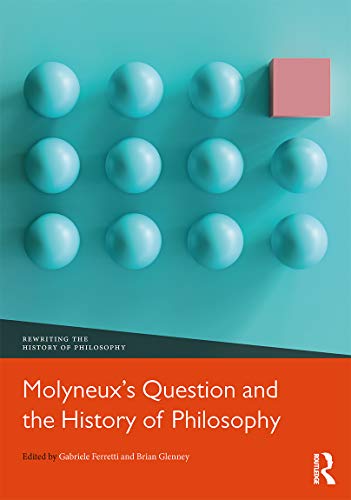

Most ebook files are in PDF format, so you can easily read them using various software such as Foxit Reader or directly on the Google Chrome browser.
Some ebook files are released by publishers in other formats such as .awz, .mobi, .epub, .fb2, etc. You may need to install specific software to read these formats on mobile/PC, such as Calibre.
Please read the tutorial at this link: https://ebookbell.com/faq
We offer FREE conversion to the popular formats you request; however, this may take some time. Therefore, right after payment, please email us, and we will try to provide the service as quickly as possible.
For some exceptional file formats or broken links (if any), please refrain from opening any disputes. Instead, email us first, and we will try to assist within a maximum of 6 hours.
EbookBell Team

4.0
56 reviewsIn 1688 the Irish scientist and politician William Molyneux sent a letter to the philosopher John Locke. In it, he asked him a question: could someone who was born blind, and able to distinguish a globe and a cube by touch, be able to immediately distinguish and name these shapes by sight if given the ability to see?
The philosophical puzzle offered in Molyneux’s letter fascinated not only Locke, but major thinkers such as Leibniz, Berkeley, Diderot, Reid, and numerous others including psychologists and cognitive scientists today. Does such a question represent a philosophical puzzle or a problem that can be solved by experimental tests? Can vision be fully restored after blindness? What is the relation between vision and touch? Are the senses linked through learning or bound at birth?
Molyneux’s Question and the History of Philosophyis a major collection of essays that explore the long-standing issues Molyneux’s problem presents to philosophy of mind, perception and the senses. In addition, the volume considers the question from an interdisciplinary angle, examines the pre-history of the question, and aspects of it that have been ignored, such as perspectives from religion and disability. As such,Molyneux’s Question and the History of Philosophypresents a set of philosophically rich, empirically informed, and scientifically rigorous original investigations into this famous puzzle. It will be of great interest to students and researchers in philosophy, psychology, and the cognitive sciences including neuroscience, neurobiology and ophthalmology, as well as those studying the mind, perception and the senses.